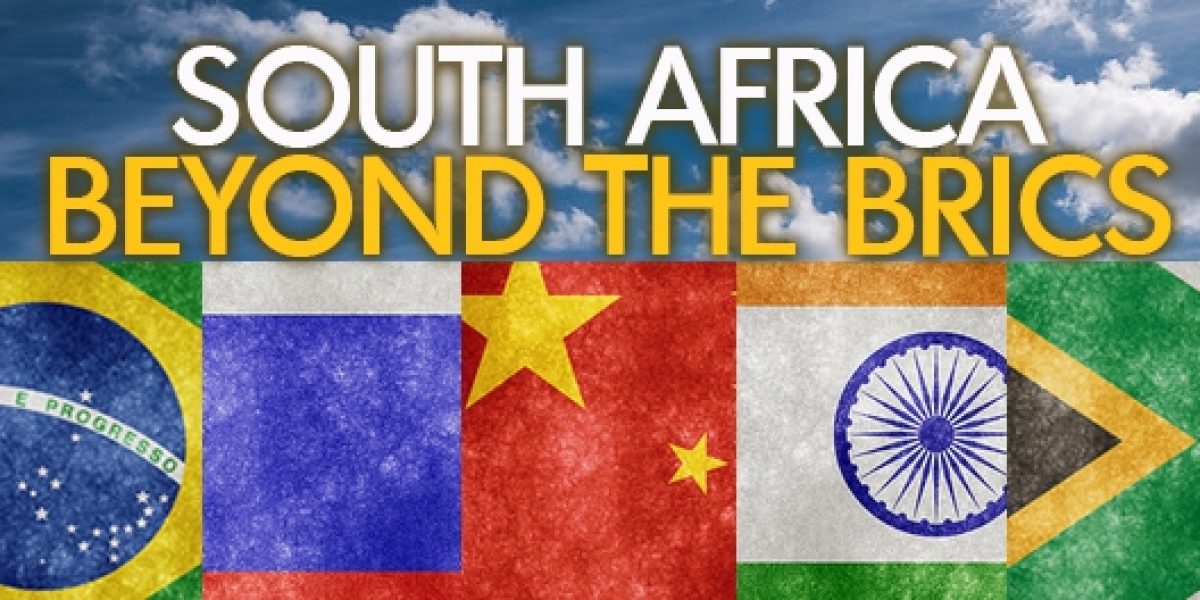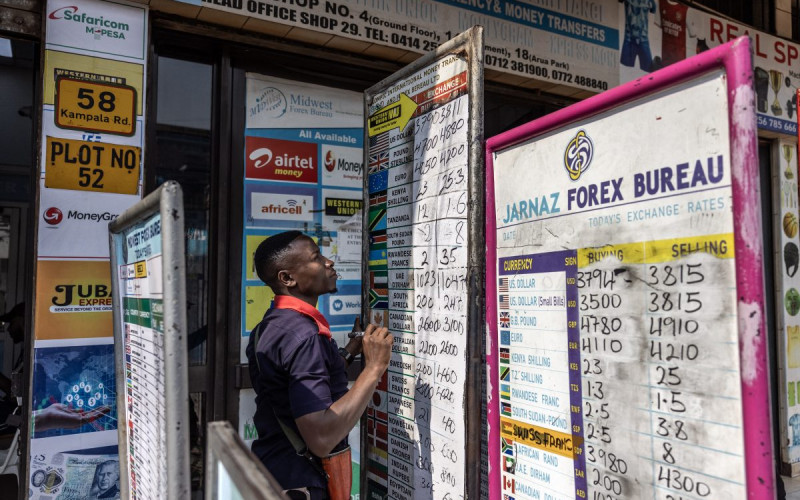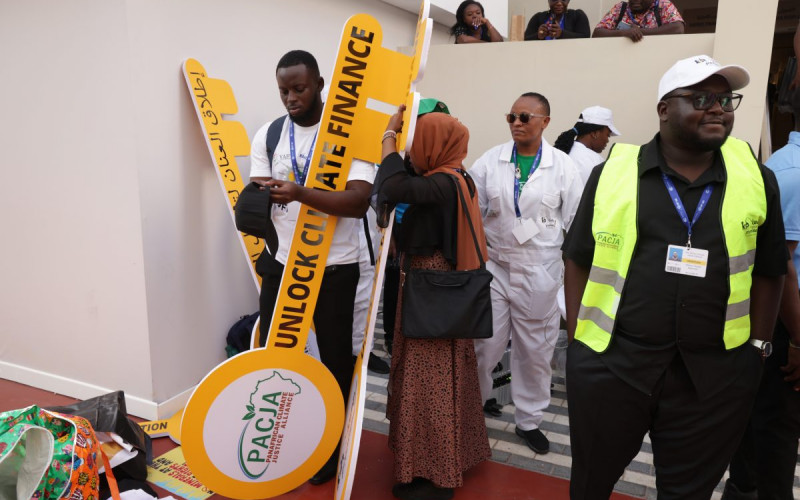South Africa’s role in global economic governance is mainly articulated through its membership of the G-20 and the BRICS grouping. The G-20 has emerged as the premier forum on global economic governance, while the BRICS countries have positioned themselves as a force for positive change in global economic affairs.
In the tussle for influence in shaping the debate on the need for global economic governance reform, the BRICS grouping has the potential to emerge as a strong coalition within the G-20. However, the role of the grouping in shaping and influencing the G-20 agenda, particularly on matters pertinent to developing economies, has been muted.
With the rise of other emerging economies, including Turkey, Indonesia, Mexico and South Korea, the position of the BRICS as a group in global economic affairs is even more tenuous. It is too small (although some would argue too large) to represent the emerging world and yet too big to be irrelevant. Considering the diverse strategic interests of emerging economies, the weaknesses of the BRICS grouping has to be viewed within the context of a generally fragmented developing world.
SAIIA commissioned a series of papers on the theme, ‘South Africa Beyond BRICS’, which are available at the end of this article.
Countries like South Africa which aim to represent African concerns in a forum like the G-20 face a particular challenge. It has to define and pursue its own strategic interests in this forum and other global economic governance institutions and, drawing from that, seek out appropriate allies and/or join corresponding coalitions. These coalitions might transcend the BRICS grouping and include developed countries.
In mapping out a foreign economic strategy, countries require a deep knowledge of the positions that potential allies might take on targeted issues. In so doing they are able to join coalitions that support their priorities.
In framing South Africa’s agenda and interests in global economic governance, South Africa frequently posits its engagement in international economic forums as acting in the interest of Africa – as framed within its African Agenda. This suggests deference to regional priorities when setting its global economic governance agenda. Thus, arriving at its foreign economic strategy implies a complex, multi-level lobbying process which determines who South Africa aligns with in the African space, with the BRICS and beyond.
As noted above, such agenda-framing has to take cognisance of conflicting interests within the BRICS, including their diverse strategic interests in the G-20, and could transcend South Africa’s BRICS membership. Moreover, further considerations and questions emerge. How should South Africa be framing its interests: as purely South African priorities or with deference to African priorities? How does taking certain positions reflect on South Africa in the continent? Is its standing diminished or enhanced? Would the positions taken increase South Africa’s global relevance? Does geopolitics and geo-economics make it necessary to consider the regional dimensions of its priorities? More importantly, how does South Africa marry its national commercial interests with its African agenda, are these always mutually enhancing?
It is also necessary to consider whether issues are country-specific, of regional priority or dominating the global economic agenda. In addition, it is important to note that issues are multi-dimensional covering the financial, trade and investment sectors, reform of global institutions, and south-south development co-operation.
The BRICS alliance seems to have yielded limited benefits for South Africa in terms of interest articulation in global economic governance beyond the rhetoric of reform and democratisation of global economic governance institutions. While elevating South Africa’s voice in global economic governance debates, it has been difficult to identify tangible economic benefits flowing from South Africa’s membership of BRICS outside of the normal bilateral economic engagement that South Africa has with individual BRICS members, which pre-date its BRICS membership, and, of course, the New Development Bank whose benefits can only be spoken of in potential terms as it is yet to be operational. The BRICS grouping does, nonetheless, play an important role in reshaping the global political economy.
It is becoming increasingly apparent that South Africa needs to explore alternative groupings in global economic governance fora which are aligned meaningfully with its domestic and strategic interests.
At a December 2014 conference arranged by the South African Institute of International Affairs, in partnership with the Politics Department at the University of Pretoria, South Africa’s coalition opportunities with other middle powers and emerging economies were considered. The conference also discussed how these states engage in the global arena while assessing the effectiveness of their strategies. A small group of emerging economies and middle powers with close similarities to South Africa were selected for the study, including Canada, Nigeria, Turkey, Mexico and Australia. A paper reviewing South Africa’s current foreign economic strategies and its guiding pillars was also presented.
The G-20 was identified as a key engagement platform for all the countries that were part of the cohort in these deliberations. Some of the findings emanating from the conference include an all-round acknowledgement that membership of platforms such as the G-20 brings status and prestige for member countries. Most of the countries studied, however, struggled with the concept of an ‘activist’ foreign economic policy that is grounded in their domestic policies and objectives. As a result, international activism is a missing component in some of the countries that were discussed.
For those countries that are also regional giants such as South Africa and Nigeria, there seems to be a tension between capacity, ability and willingness to exercise regional leadership.
Acknowledging that economic interdependence among countries has led to such tensions, the overriding finding was that pursuing a narrow national interest while engaging in global economic governance is a challenge for most emerging economies. The multipolar nature of the global environment places increased stress on emerging economies.
Seemingly, engagement in the international arena poses a challenge for emerging economies including South Africa, so drawing from similar challenges amongst peer countries during the conference provided useful recommendations. Some of these include the need for South Africa to identify clear principles that drive the country’s foreign economic policy. The immediate post-1994 era was flagged as a period with a strong overarching economic strategy and framework.
Engagement with key stakeholders in the country’s political economy, such as the business sector, was identified as a key determination of a county’s foreign economic policy. It also ensures that strong domestic linkages in the policies are articulated and pursued.
On the question of ‘South Africa beyond BRICS’, it is important to leverage BRICS membership in a way that enables tangible economic benefits for the country. Participation in the BRICS grouping should also be complemented by pro-actively entering into coalitions in global economic governance forums with other like-minded countries on a thematic basis and beyond the South-South cooperation fold.
Beyond the BRICS Papers
- South Africa and FOCAC: Enabling a Partnership for Global Economic Governance Beyond the BRICS?, SAIIA Policy Insight 26 by Sanusha Naidu.
- ‘Australia’s Policy Priorities in a Global Era (PDF),’ SAIIA Policy Briefing by Mark Beeson.
- ‘South Africa’s Foreign Economic Strategies in a Changing Global System,’ SAIIA Policy Insight 7 by Mzukisi Qobo and Memory Dube.
- ‘The Changing Nature of Turkey’s International Policy,’ SAIIA Policy Insight 8 by Mehmet Arda.
- ‘The Recalibration of Middle Powers under Conditions of Stress and Opportunity,’ SAIIA Policy Insight 9 by Andrew Cooper.
- ‘The BRICS Contingent Reserve Arrangement and its Position in the Emerging Global Financial Architecture,’ SAIIA Policy Insight 10 by Nicolette Cattaneo, Mayamiko Biziwick and David Fryer.







